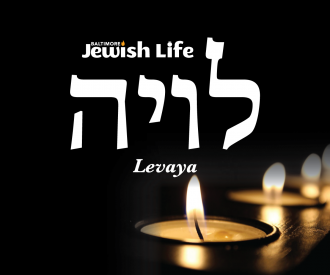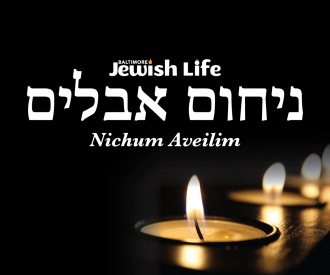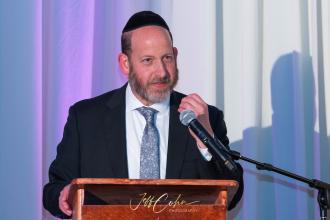Yaakov has just spent a total of thirty four years away from ‘home’. For fourteen years he dwells in the academies of Shem and Ever fortifying himself with the spiritual strength he will need to face some very challenging adversaries. During the next twenty years that he spends in the company of his diabolical father-in-law Lavan, he proudly fathers a family successfully, warding off the negative influences from that poisonous and dysfunctional environment, finally breaking away when he flees from Lavan. On his journey back home his menacing brother Esav finally catches up with him in a tense but ultimately peaceful confrontation.
Yaakov has clearly achieved great stature both spiritually and emotionally. He stands up admirably to his two greatest antagonists and asserts with great confidence his moral supremacy and strength.
Yet, shortly after this, tragedy strikes. His daughter Dinah is abducted and violated by Shechem.
Where is the justice? After literally risking his life in his two showdowns, defying these criminals and their murderous intent, his cherished daughter should be plundered?
There are several suggestions in the Midrash as to why Yaakov was punished with this event.
One suggests that after G-d conferred upon Yaakov the title ‘El’, G-d, Yaakov asserted that G-d was the Lord above and he was now the ‘Lord’ below. He was taken to task for ‘usurping authority’ and penalized with his daughter being despoiled.
Another opines that when after defining the terms of his wages with Lavan, Yaakov ‘presumptively’ states, “In the future when you go over my wages, let my honesty toward you testify for me”, he was taught through the unfortunate episode with Dinah that no one can ever make any assumptions in life.
Despite the difficulty in understanding exactly the nature of Yaakov’s ‘arrogance’ that he was being held accountable for, the question begs as to why the poor girl Dinah, is made to suffer and be shamed for the sins of her father.
We are all familiar with the additional claim that Yaakov was reprimanded for preventing Dinah from marrying his brother Esav. Before his encounter with him, Yaakov had brought his family across the Yabok River. The Torah reports how he transported his ‘eleven’ children. The Midrash asks that there were twelve children, so where was Dinah? It answers, that he had locked her in a chest so that Esav should not see her and take her. G-d then told him, “You withheld Dinah from your brother, and, due to her good attributes, she could have reformed him. Since you did not want to give her to Esav, who was circumcised, you are punished through her being taken by one who was uncircumcised, Shechem son of Chamor; you did not give her in legitimate matrimony, therefore you are punished by her being taken by Shechem out of wedlock.”
How ironic. This daughter of Leah, Dinah, whose mother cried incessantly, appealing to G-d to prevent her from falling into the clutches of Esav, and because of that sincere fear was rewarded to be buried next to Yaakov rather than Rochel, is faulted for not giving herself up to Esav in order to reform him and in punishment for that lapse becomes the victim of the vile and lecherous Shechem?!
Nitai of Arbel says: Distance yourself from a bad neighbor; do not associate with a wicked person; and do not despair of retribution. (אבות א ז)
If one is to follow Nitai’s advice how then do we understand the expectation of Dinah to have reached out to Esav, the ‘wicked one’?
The 16th century Spanish scholar and communal leader, Rav Moshe Almushnino insightfully analyzes the exact wording used in the Mishna, אל תתחבר לרשע, literally, do not ‘connect’ to the wicked one, in instructing us how we can healthily interact with, and positively influence, the wicked.
The issue at hand here is: Who in the pairing up is the עיקר, primary, and who is the טפל, secondary. As long as we aren’t ‘joining’ unto them, with us remaining secondary and they primary, and they exhibit a willingness to become secondary to our ‘primary’ stature, then we are assured success, and are permitted and even encouraged to engage with them.(מדרש שמואל)
In Yaakov’s dealings with Lavan and Esav he developed a healthy confidence in his role as representative of G-d’s values and ethics, and was thus capable of remaining in the ‘primary’ role.
Although Yaakov exhibited an aura of ‘confidence’ in his mission and connection with G-d, secure in a relationship that G-d would assist him in accomplishing his goals, evidently though he didn’t transmit that same confidence to Dinah. His dread of Esav’s intention and the need to safeguard Dinah by ‘locking her up’, prevented her from standing confidently on her own in the knowledge that the same G-d that would protect Yaakov would strengthen Dinah in her resolve as well. By not instilling this confidence in her, she remained a self-doubting young woman who would be susceptible to the influence of a world that engaged her curiosity, who didn’t possess the requisite inner-strength and faith in herself that could ward off those outside influences.
His self-assurance was flawed and viewed as if he attributed his success to his own initiative rather than ascribed to G-d, and was thus faulted. Were he to have been perfect in that faith it would have been inculcated into Dinah without any further need to ‘protect’ her.
In all her exposures to the outside world she would perceive herself as ‘secondary’ and thus susceptible to being tainted, and certainly unable to affect Esav in any way.
Dinah’s abduction by Shechem wasn’t a punishment per se for Yaakov’s lapses, but rather the natural consequence of having been weakened in her own self-image and resolve by not having been infused by her father with the trust that is so vital. That meekness enabled her to be ‘taken’.
The Midrash teaches that her having been locked up in a box resolves why the Torah refers to Yaakov’s eleven, rather than his twelve, children. Is a child placed temporarily in a box no longer a child and undeserving of being counted?
Perhaps the message therein is that child who feels ‘boxed in’ and doesn’t sense the confidence and trust of a parent in them, is truly diminished and virtually ‘nonexistent’.
The Ramban reports that Dinah is buried in the town of Arbel, together with its ‘native’ Nitai.
Nitai taught that one must distinguish oneself by one’s personal values and convictions and stand proudly apart from the bad ‘neighbors’ one is surrounded by.
Doesn’t this echo Yaakov’s proclamation to Esav that he ‘lived with Lavan and had not having learned from his bad ways’?
His flight from Lavan was a further reiteration of this principle to ‘distance’ oneself from a bad neighbor.
Nitai’s directive not to associate with the ‘wicked one’ affirms Yaakov’s intent to encounter Esav without ever kowtowing or ‘connecting’ to him.
Perhaps he was also subtly alluding to this failure of Dinah, not due any fault of her own, to incorporate this lesson, and therefore had to endure a further refinement in the continual process called life where we are constantly called upon to perfect the flaws we inherited.
This is Nitai’s last charge. Many interpret the sentiment, אל תתיאש מן הפורעניות, as: don’t allow yourself to despair from ‘punishment’ you receive, because ultimately it is brought upon you so that you may rectify the defect you have inherited.
It is revealed that the child that Shechem impregnated Dinah with, was Osnat, who would go on to become the wife of Yosef, who became the paradigm of righteousness, surviving in the face of the most poisonous influences and decadent of societies. Osnat would mother two sons who would become full-fledged tribes, Efraim and Menashe, who developed into greatness amidst the darkness of Egypt without the benefit of their illustrious Zayda and uncles.
The force that will defeat the powers of Edom, Yishmael and Amalek is that of Moshiach ben Yosef. It is the power that will conquer and overcome the physical and spiritual forces that seek to inundate us.
The Torah says ותצא דינה, and Dinah went out. The masters of the secrets of Torah reveal that this alludes to Dinah’s ultimate recovery and the vital role her descendants will play in the image of משיח בן יוסף, which is numerically equivalent to ותצא דינה! (566)
The illustrious Rav Meir Shapiro averred that the name נִתַּאי, is an acronym for the expression we recite each day: נטית ימינך תבלאימו ארץ, You stretched out Your hand - the earth swallowed them.
This emphasizes G-d’s constant attention to every aspect of creation and our personal lives, asserting the awareness that if G-d were to remove His guiding ‘hand’ we would cease to exist.(מכילתא)
Dinah absorbed well this important lesson of Nitai, and despite her personal trauma continued to restore that inner resolve until it found its full expression through her daughter and progeny, that will one day soon pave the way for the coming of Moshiach ben Dovid.
The Jerusalem Talmud relates how Rebbi Chiya the great and Rebbi Shimon ben Chalafta were walking in the Arbel valley at daybreak. And they saw the first rays of dawn as the daylight broke forth into the sky. Rebbi Chiya the great said to Rebbi Shimon ben Chalafta, “Like the
break of day so is the redemption of Israel. It begins little by little and, as it proceeds, it grows greater and greater. This notion, the Gemara continues, is based on the verse, When I sit in darkness the Lord will be a light to me. (ברכות א א)
Each one of us , little by little, every time we seek to repair our flaws, attempting to improve and overcome the circumstances that challenge us whatever they may be, we reveal another ray of light that will collectively accumulate growing stronger and stronger until it will illuminate an entire world.
Dina rests precisely in the valley of Arbel inspiring us to never get discouraged and to appreciate each increment of light that we generate from our sincere commitment and efforts to improve. From that same region, Nitai encourages us, through his eternal words to stand distinguished and proud before a world in desperate need for inspiration, reminding us to never get discouraged, continuing the process of perfection until such time as the brilliant light of redemption will brighten the entire world.
באהבה,
צבי טייכמאן















